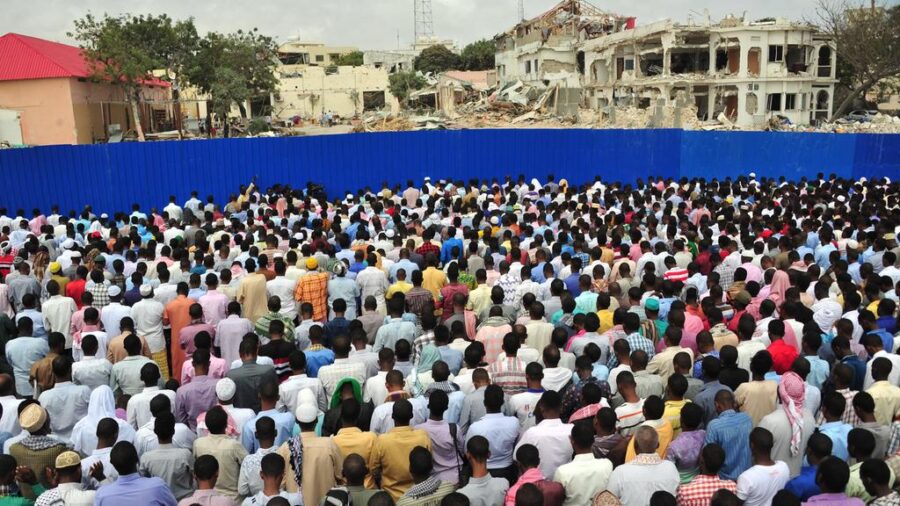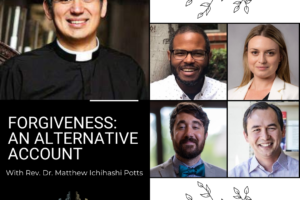With the unsettling rise of international tragedies also comes the unfortunately now all-too-familiar swell of collective showings of solidarity on social media. In the wake of such horrific events, Facebook profiles have been seen switching en masse to familiar symbols and hashtags displaying strength amid loss: #BostonStrong #HoustonStrong #WeAreManchester #Aleppo #PrayForParis #JeSuisCharlie.
So when the Thanksgiving holiday weekend was sadly marred by news of yet another terrorist attack, this time in a Mosque in Egypt claiming the lives of more than 200 innocent worshippers, the comparative lack of attention on social media was dismaying. In fact, at least on my check, the attack in Egypt was nowhere to be found trending on Twitter that day (instead the U.S. hashtags linked to such news as #BlackFridayDeals, #MaliaObama, and #HeyArnoldTheJungleMovie).
News outlets noticed a similar silence over Somalia last month when the citizens of Mogadishu suffered a pair of bombings within weeks of each other claiming more than 300 innocent lives. The BBC wondered why #PrayForMogadishu was not trending anywhere on any of the major platforms. Al Jazeera followed with a piece on double standards on social media, stringing together several well-worded rebukes for those who mourned the lives lost in Manchester, Paris, and Las Vegas, but failed to pause to stand with the fallen of Somalia.
Tweeted one such rebuke:
500+ casualties. The West cares about terrorism when a POC attacks white people, but is silent when the victims are POC. #Mogadishu #Somalia
— Invicta (@InvictaVis) October 16, 2017
And another from Hamza Ali Abbasi:
More than 200 killed in a blast in Somalia, no twitter trends/headlines, proof tht world is governed only by power politics not by humanity.
— Hamza Ali Abbasi (@iamhamzaabbasi) October 16, 2017
Comparing Lives by the Number of “Likes”
It is lazy to simply attribute this relative lack of attention to the charge that white people are not involved. It would, however, be equally lazy to dismiss the claim altogether. The collective shows of solidarity in English-speaking social media simply value white lives differently. The late Patrice O’Neal burned me once over this very issue, and if you watch this clip below, I’m wagering he’s likely to get you too.
[note: Placing the clip is a risk given the recent events. But the humor is itself indispensable to the insight and so after some internal debate, here it is respectfully submitted]
The Solidarity Bandwidth
Now in some fairness to those of us who simply scrolled past news of Egypt this weekend [if you saw the headlines at all], we have seen quite enough of shared international tragedy to last us for a long while. The last few months have witnessed the grief of still more mass shootings, the wreckages of Hurricanes Harvey, Irma, Jose, Maria, earthquakes in Mexico, fires in California, and the list goes sadly on. The bandwidth that is available for internet solidarity indeed feels like a diminishing commodity—the reserves having long run low. And if we are pragmatic, there is a reality to be recognized here—unless we are to go numb, we simply cannot attempt to constantly feel the weight of pain across the entire globe on a regular basis.
All of this taken for granted, had the events in Somalia or Egypt taken place in Denver, or Toronto, or Berlin, the outpouring of grief and solidarity are certain to be different. The important question is, “Why?” Should our collective grief be any different whether the loss of life is in Somalia, or Manchester, or Paris, or Puerto Rico, or Las Vegas, or Santa Rosa? Do we only pay attention to lives lost when it is a matter of same color, same country, same sides?
The fact is that all of us have the capacity to make more room for standing with hurting people outside our tribes. Showings of social media solidarity should remain a valuable thing — it raises awareness, it raises relief donations, it motivates change. But the message is diminished if we are selective in our solidarity. I write this to urge a widening of those we mourn and rejoice with. I write this to call upon us to risk an increase to our solidarity bandwidth. It takes work; it means more than just feeling badly over something. It takes the formation of new relationships, new reading interests, new coalitions, and forging friendships in unexpected places. At least in my experience, every move I have taken in these directions continue to generously repay the efforts.
Stand with the good people of Egypt as we all have with those in Manchester, in Paris, in Newtown. Those who were tireless in their solidarity with Houston and Florida in the wake of the hurricanes should send a similar measure of that concern and support with those in Cuba and Puerto Rico. If you can even imagine, the lights are still out on in many places in Puerto Rico. Things are not well there. Mourning with those who mourn increases the opportunities to rejoice with those who rejoice. Somalia will rise again and it will be good day when we can rejoice with the people of Mogadishu. Egypt will rise again as it so often has. The lights will come back on in Puerto Rico once more. For my friends who have felt their pain and lended support in these dark days… Man—to be in San Juan when the party starts.






1 Comment
Leave your reply.